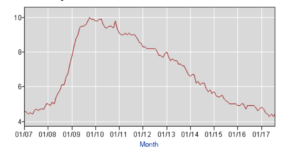Rejecting an order is hard to do. There’s the voice in the back of your head warning that you may lose the customer altogether.
Depending on your industry, there’s a risk with every order you fill. You know those risks like the back of your hand. However, it’s not like you have zero control. You take measures to reduce your risks every day. When it comes to POs, minimizing the risk starts with those who process them.
Your order-entry and sales personnel are a great line of defense for catching any deal-breakers that find their way onto a PO. Train them well and save yourself some headaches.
Personnel should decline a purchase order in the following circumstances:
PO lists incorrect credit terms
Pricing is incorrect
PO references a return policy that doesn’t match yours
PO lists penalty clauses that are not part of your normal terms of sale
PO lists FOB (freight on board) terms that differ from yours
PO lists a different legal name from your records
 It is important to note that to decline a PO does not mean you have to give up on the sale. It just means that you need to discuss changes that need to be made with your customer before the PO can be approved. A botched PO that makes it through the entire fulfillment process can be a potential problem later on. An incorrect price, for instance, may lose your money to the customer’s gain. And he’s going to do exactly what you think he’s going to do: hold you to the price on the PO. And he’d be in the right.
It is important to note that to decline a PO does not mean you have to give up on the sale. It just means that you need to discuss changes that need to be made with your customer before the PO can be approved. A botched PO that makes it through the entire fulfillment process can be a potential problem later on. An incorrect price, for instance, may lose your money to the customer’s gain. And he’s going to do exactly what you think he’s going to do: hold you to the price on the PO. And he’d be in the right.
Insist upon careful inspection of every PO down to the letter and insist upon written amendments (no oral agreements allowed). Make it right the first time to avoid wasted time and money.


 Know how much is too much
Know how much is too much off outstanding debt. The one problem is you are not the only person trying to get paid. This means you need to assert yourself as someone they will want to prioritize. The goal is to get on your delinquent customer’s payment schedule. Make your business a priority so that you receive payment between November 15 and December 15. Chasing the debt after December 15 will be unsuccessful because many employees will be away for the holidays and it will be significantly easier to push payment off until the beginning of the year.
off outstanding debt. The one problem is you are not the only person trying to get paid. This means you need to assert yourself as someone they will want to prioritize. The goal is to get on your delinquent customer’s payment schedule. Make your business a priority so that you receive payment between November 15 and December 15. Chasing the debt after December 15 will be unsuccessful because many employees will be away for the holidays and it will be significantly easier to push payment off until the beginning of the year.
 Keep it short and sweet
Keep it short and sweet Mistake Number 3:
Mistake Number 3: Use your extra time wisely
Use your extra time wisely the term “policyâ€
the term “policyâ€